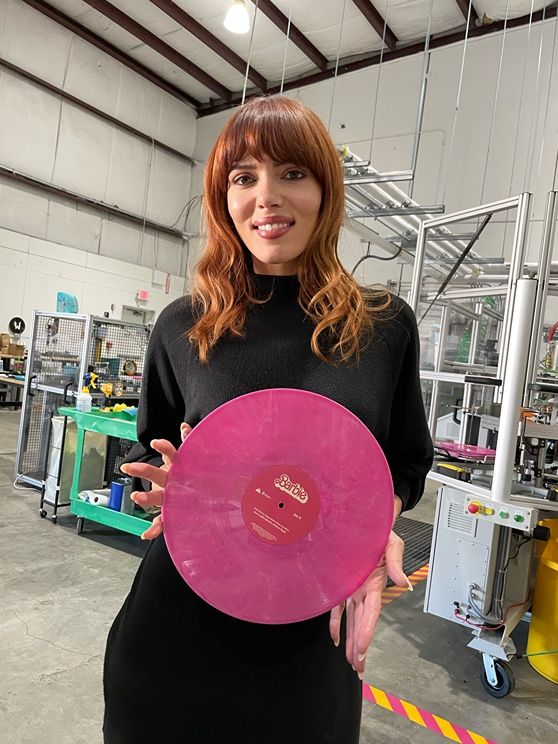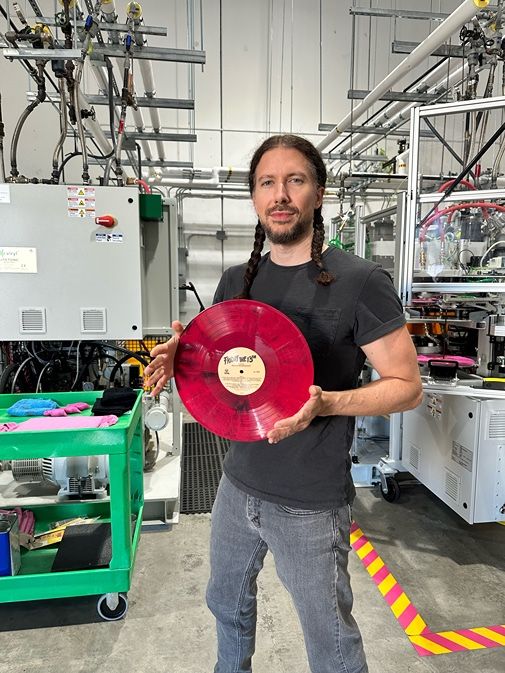On The Record
Vinyl albums saw a major resurgence in popularity starting in about 2006. In fact, vinyl record sales have risen each year for 17 years in a row, and there are no indications to suggest that momentum is going to slow in the foreseeable future, making them great holiday gifts or gifts in general. New Orleans is the home of two vinyl album pressing companies that work with local, national, and international bands and major production companies to cut hot wax for those enthusiastic collectors.
New Orleans Record Press
New Orleans Record Press has been churning out vinyl albums since 2017, and the demand for albums has only grown since that time including during the chaotic pandemic years. "The record industry went through a crazy time with long waits and not enough capacity, so we worked on expanding and growing this from a small press that was always doing national as well as local to really focus on Louisiana-based artists, but we're also doing stuff for national and international folks," Brice Nice of New Orleans Record Press stated.
The process of record pressing is not a simple one, even in our digital age. "The process itself is kind of absurd," Nice summarized.
He went on to explain how little vinyl pellets are sent through a large, loud machine that uses steam, cold water, and lots of pressure to create the final product. "It's a petroleum-based product. We currently have three machines. One was bought new when we opened back in 2017. It's fully-automated. The other two machines were made in Nashville in the '60s. The technology is pretty much the same."
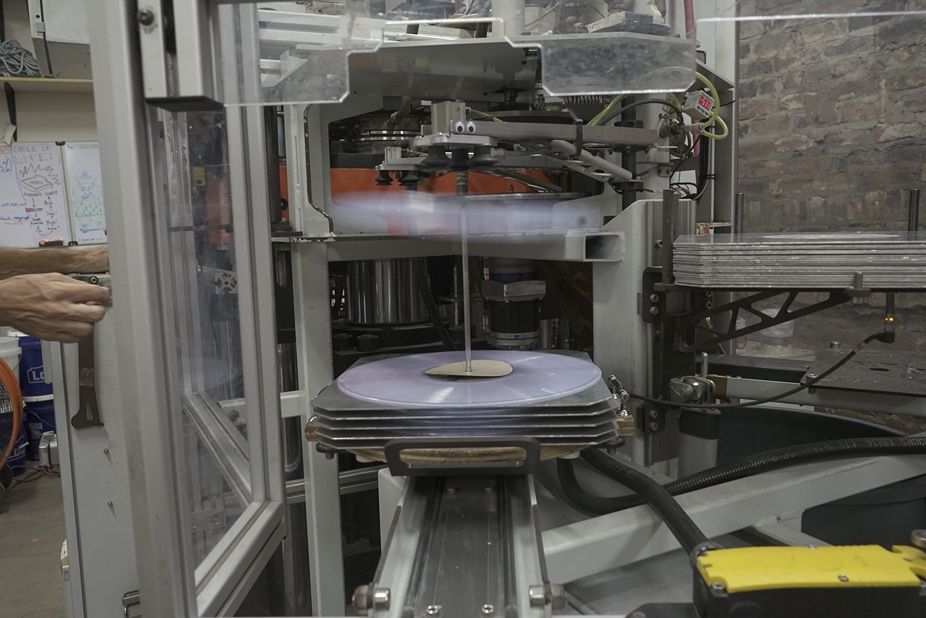
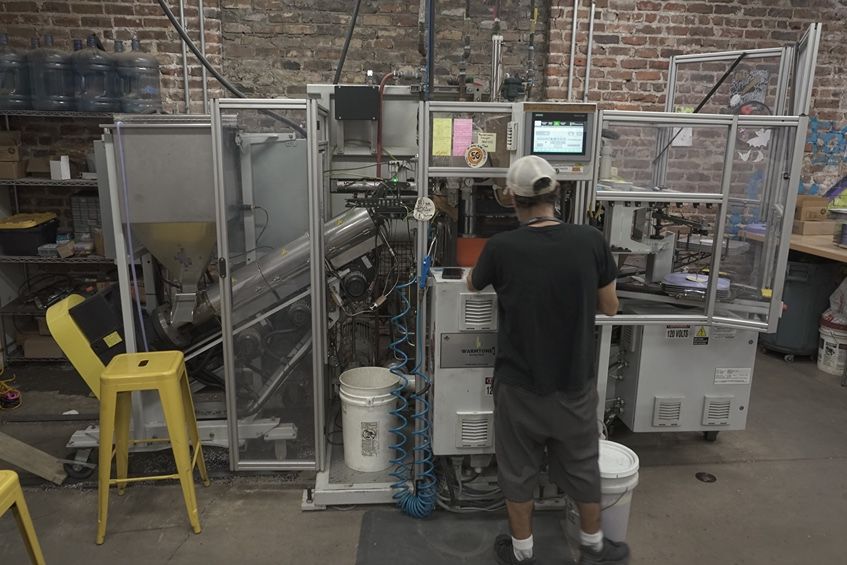
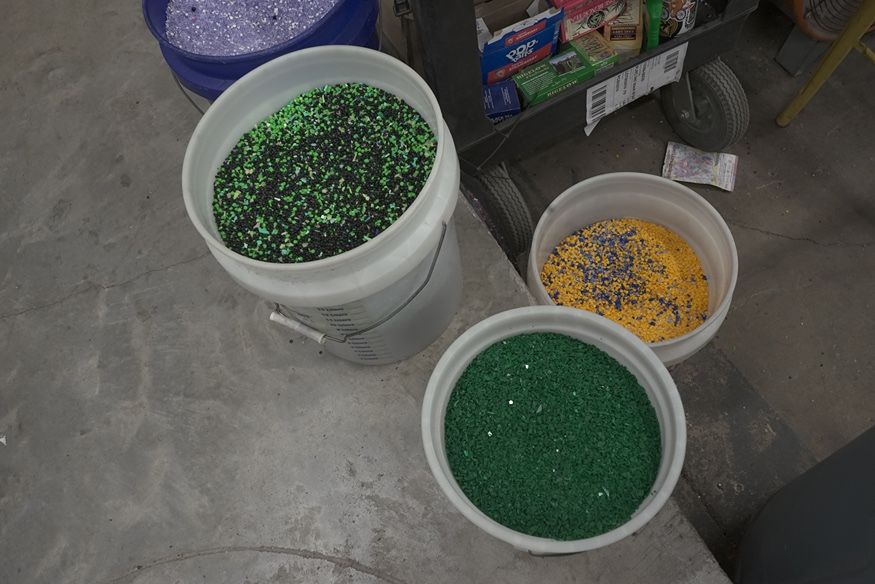
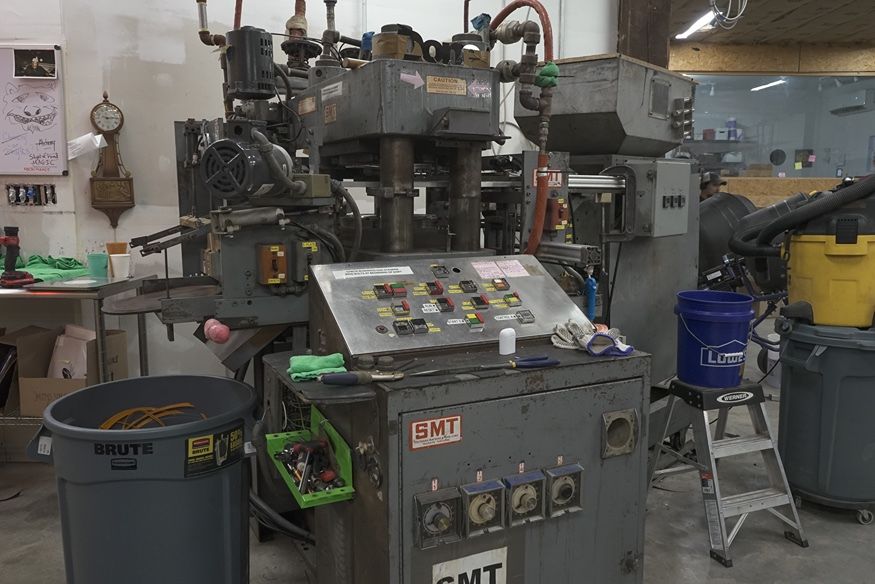
The pellets come in a variety of colors or can be mixed to create a smoky look in the record. "We have a boiler that creates hot steam that sends the steam into the pipes. We put the pellets into the hopper. It gets heated up then runs through this extruder. It's going to place the labels on the top and bottom of it. The labels on a record are put on by pressure—they're not glued. The bottom and top stampers are the actual grooves. It goes under really high pressure, the hot steam melts the vinyl pellets, then it shoots cold water on it to harden it into a flat record. Then they get trimmed and dropped on the spindle with heavy plates to cure them."
Pipes throughout the warehouse send steam to chiller machines that send the water back to holding tanks to go through the presser. It's not uncommon to experience issues during the process, but discarded records are ground up, melted, and reused. "There's a ridiculous balance between too hot, too cold, too much pressure, not enough, too long of a cycle, not enough, and that's why it's hard to get it done right. You need a lot of infrastructure to make it work well."
The labels also require specific treatment before being pressed onto a record. Nice said, "This is crazy. You have to bake the labels. We get labels from special printers because they need a certain type of paper with a certain moisture content. We can't find anyone locally who can do it. You have to bake them in an oven for a certain amount of time before you use them to prevent them from both sticking or exploding."
New Orleans Record Press stays busy with staff members pressing, inspecting, sleeving, and shrink wrapping every copy by hand. "We work seven days a week from 8 a.m. to midnight, all year long except for holidays. I think bands see with streaming that there's no revenue in that. This is the one way that their fan's money goes into their pocket. And it's just more fun to listen to a record."
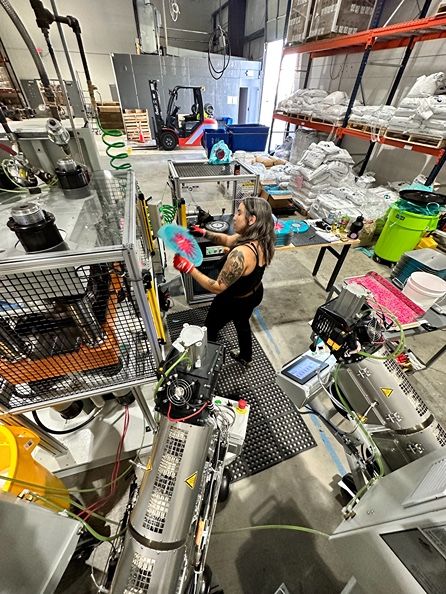
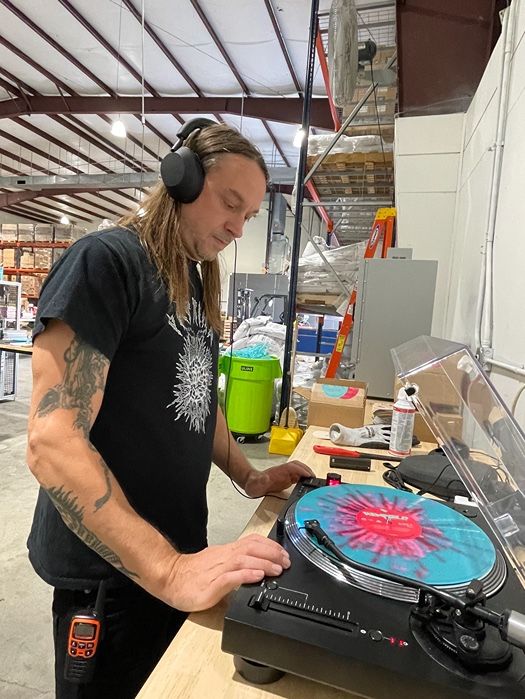
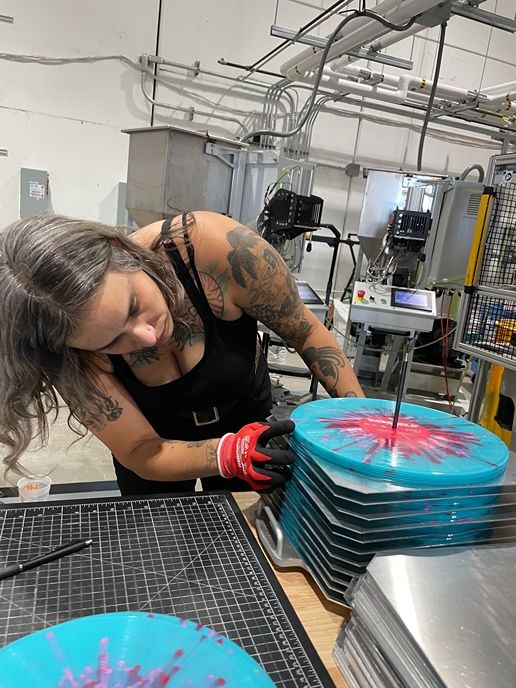
Waxwork Records
Unlike New Orleans Record Press, Waxwork Records was merely a label focused on remastering soundtracks and scores for release on vinyl when they started in 2013, but they switched into making their own records just to keep up with demand when the pandemic problems loomed. "Vinyl sales soared globally for everyone making records and the very few vinyl pressing plants in the world were struggling to keep up with demand," Waxwork Records Co-Founder Kevin Dredge explained. "What had taken us three months to make happen before the pandemic had grown to 10 to 12 month turnaround times. One of our titles took 15 months to manufacture. That's just insane and clearly poor management. It's just not viable for any business. So we decided to do it ourselves."
After one year of planning the intensive operation and another year finding a building and retrofitting it to house all of the incoming equipment, Waxwork Records' pressing plant was born. "It's still very new. We're still learning. We're pressing records right this very moment and literally every day is a new obstacle to overcome."
It's hard to imagine the vinyl wave crashing with record sales earning more revenue in 2022 than they did in 1986. Still, the way in which consumers are purchasing vinyl has noticeably changed. Dredge noted, "The customers are more selective now. I think that oversaturation of the market has sort of bewildered customers and forced them to be more selective about what they spend their money on. There's just so much stuff out there now. It's kind of paralyzing and maybe takes away the cool, outsider, in-the-know quality that vinyl had a decade ago. With all that said, people are still buying records. Some stuff is just so threaded into the fabric of nostalgia and pop culture and people will want that right away. They'll catch the wave."
